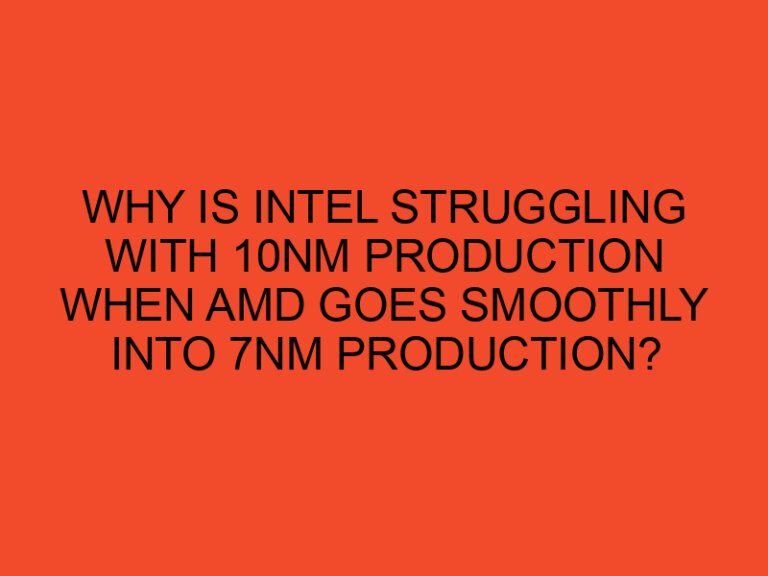A CPU, or Central Processing Unit, is the brain of a computer. It is responsible for processing instructions and performing calculations that enable the computer to function. The CPU is made up of several components that work together to ensure its proper functioning. In this article, we will explore the three main components of a CPU.
Table of Contents
The Control Unit
The Control Unit is responsible for controlling the flow of data within the CPU. It acts as the conductor of the CPU orchestra. It receives instructions from memory, decodes them, and directs them to the appropriate part of the CPU. The Control Unit also manages the timing of instructions and ensures that they are executed in the correct order.
The Arithmetic Logic Unit
The Arithmetic Logic Unit, or ALU, is the part of the CPU that performs calculations. It performs mathematical operations, such as addition and subtraction, as well as logical operations, such as AND, OR, and NOT. The ALU works in conjunction with the Control Unit to execute instructions.
The Cache
The Cache is a small, high-speed memory located within the CPU. It stores frequently used instructions and data so that the CPU can access them quickly. The Cache is divided into levels, with each level being faster and smaller than the previous level. The Cache plays a vital role in CPU performance and is a critical component in modern CPUs.
The Clock Speed
The Clock Speed refers to the number of clock cycles per second that the CPU can perform. The clock speed is measured in hertz (Hz) and is a crucial factor in determining CPU performance. A higher clock speed means that the CPU can execute more instructions per second, leading to better performance.
The Registers
The Registers are small, high-speed memory locations within the CPU. They are used to hold data that is being processed by the CPU. Registers are essential for CPU performance, as they allow the CPU to access data quickly and efficiently.
The Instruction Set
The Instruction Set refers to the set of instructions that the CPU can execute. The Instruction Set is defined by the CPU architecture and determines what types of instructions the CPU can process. Modern CPUs have complex Instruction Sets that allow them to perform a wide variety of tasks.
The Pipelining
Pipelining is a technique used by CPUs to increase performance. It allows the CPU to execute multiple instructions simultaneously by breaking down the instructions into smaller steps and executing them in parallel. Pipelining is a critical component of modern CPU design and has significantly improved CPU performance.
The Heat Sink
The Heat Sink is a component that helps to dissipate heat generated by the CPU. It is typically made of metal and is attached to the CPU. The Heat Sink absorbs heat from the CPU and transfers it to the surrounding air.
The Fan
The Fan is a component that helps to cool the CPU. It is typically attached to the Heat Sink and helps to circulate air around the CPU. The Fan is essential for preventing the CPU from overheating, which can cause damage to the CPU.
The Overclocking
Overclocking is the process of increasing the clock speed of a CPU beyond its rated speed. Overclocking can lead to improved CPU performance but can also cause the CPU to overheat and fail. Overclocking is typically done by computer enthusiasts and gamers looking to push their CPUs to the limit. It is important to note that overclocking can void the CPU’s warranty and should only be done by experienced individuals.
The Future of CPUs
The future of CPUs looks bright, with advancements in technology leading to faster and more powerful CPUs. The development of new manufacturing processes and materials is leading to smaller, more efficient CPUs. Additionally, advancements in artificial intelligence and machine learning are leading to CPUs that can learn and adapt to new situations.
Conclusion
In conclusion, the CPU is a critical component of a computer system. It is made up of several components, including the Control Unit, Arithmetic Logic Unit, and Cache. These components work together to ensure that the CPU can process instructions and perform calculations. Other components of the CPU, such as the Registers, Instruction Set, Pipelining, Heat Sink, and Fan, are also essential for proper CPU functioning. With advancements in technology, the future of CPUs looks bright, with faster and more powerful CPUs on the horizon.
FAQs
- What does CPU stand for?
- CPU stands for Central Processing Unit.
- What is the Control Unit?
- The Control Unit is responsible for controlling the flow of data within the CPU.
- What is the Arithmetic Logic Unit?
- The Arithmetic Logic Unit is responsible for performing calculations.
- What is the purpose of the Cache?
- The Cache stores frequently used instructions and data so that the CPU can access them quickly.
- Can overclocking a CPU damage it?
- Yes, overclocking can cause a CPU to overheat and fail, which can lead to permanent damage.






